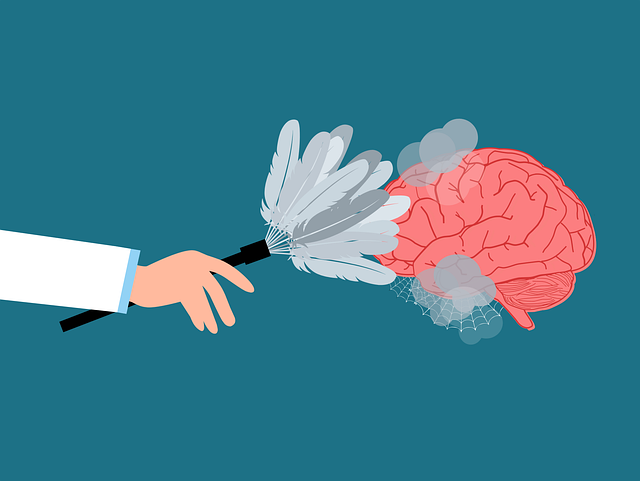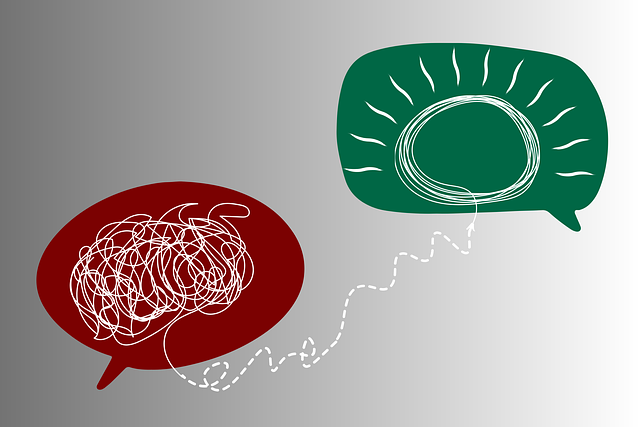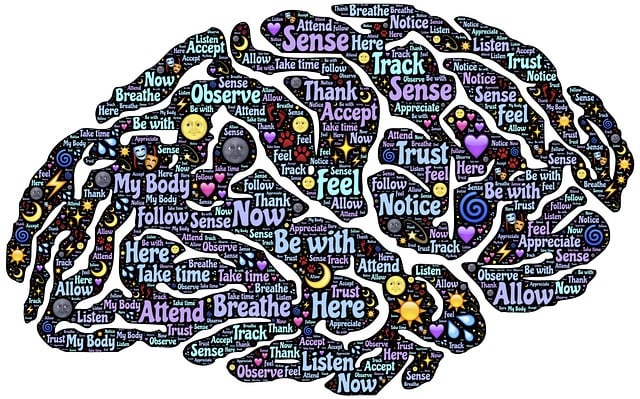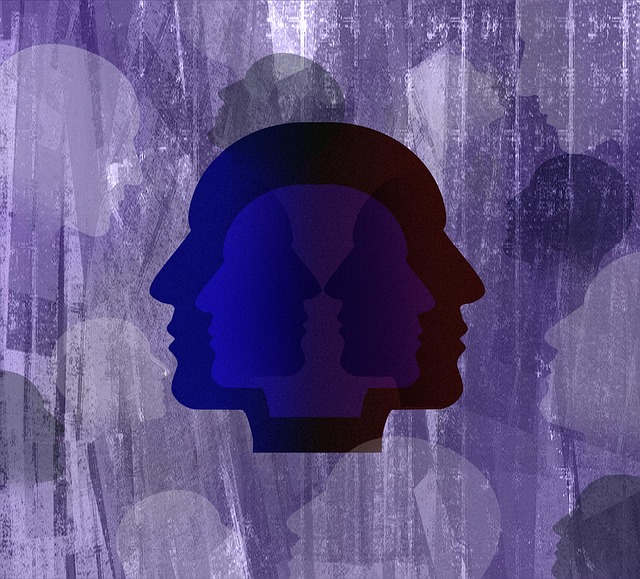In Boulder, the stigma surrounding mental illness poses a significant barrier for survivors of sexual abuse seeking support. This negative societal perception leads to discrimination and social isolation, hindering access to treatment. By recognizing mental illness as a common struggle and encouraging open dialogue about emotional challenges, self-care practices, and emotional intelligence, individuals can effectively navigate their mental wellness journeys. Stigma reduction efforts through education and awareness campaigns normalize conversations about mental wellness, fostering understanding and compassion. Boulder Sexual Abuse Survivor Therapy goes beyond traditional therapy by creating safe, compassionate spaces for processing trauma experiences, integrating compassion cultivation practices to reduce stigma and empower survivors. Building supportive communities through safe spaces normalizes conversations around mental health, cultivating empathy and understanding for individuals with mental illness.
Mental illness stigma, a pervasive barrier to recovery, demands continuous effort to reduce its grip on society. This article explores comprehensive strategies to combat this challenge, encompassing education, awareness campaigns, therapeutic support, and community building. By delving into these crucial aspects, we aim to illuminate effective paths towards empathy, acceptance, and improved mental health outcomes, including for survivors of trauma like sexual abuse in Boulder.
- Understanding Stigma and Its Impact on Mental Health
- The Role of Education and Awareness Campaigns
- Supporting Survivors: Therapeutic Approaches and Resources
- Building a Community of Empathy and Acceptance: Strategies for Long-term Change
Understanding Stigma and Its Impact on Mental Health

Stigma surrounding mental illness is a significant barrier to individuals seeking help and support for their emotional well-being. It can manifest as negative attitudes, stereotypes, or beliefs that devalue those experiencing mental health challenges, often leading to discrimination and social isolation. This stigma impacts not only an individual’s willingness to access treatment but also influences how society perceives and treats people with mental illnesses. For instance, survivors of traumatic experiences like sexual abuse in Boulder may face additional challenges due to the stigma associated with mental health issues, hindering their path towards healing and recovery.
Understanding the profound effect of stigma is crucial for fostering empathy and creating supportive environments. By recognizing that mental illness is a common human experience, we can encourage open conversations about emotional struggles. This shift in perspective, coupled with self-care practices and emotional intelligence, enables individuals to navigate their mental wellness journeys effectively. Mental wellness journaling exercises, for example, provide guidance for introspection and self-reflection, helping individuals challenge negative thoughts and cultivate resilience.
The Role of Education and Awareness Campaigns

Stigma reduction efforts play a pivotal role in fostering understanding and compassion for mental illness. Education and awareness campaigns are powerful tools that can dispel myths and misconceptions surrounding mental health. These initiatives aim to normalize conversations about mental wellness, encouraging open dialogue and empathy. By providing accurate information, such campaigns help individuals recognize the symptoms of various mental health conditions and reduce the likelihood of stigma-driven judgment.
In the context of Boulder Sexual Abuse Survivor Therapy, education is tailored to address specific challenges faced by survivors. Awareness campaigns highlight the importance of self-care practices as essential components of anxiety relief for those who have experienced trauma. Promoting mental wellness becomes a collective effort, where communities learn to offer support and understanding, ensuring that individuals seeking therapy feel accepted and encouraged rather than stigmatized.
Supporting Survivors: Therapeutic Approaches and Resources

Supporting survivors of mental illness is a multifaceted approach that goes beyond traditional therapy. In Boulder, sexual abuse survivor therapy has emerged as a powerful tool to address the unique challenges faced by those who have experienced trauma. This specialized form of counseling focuses on creating safe and compassionate spaces where individuals can process their experiences and develop resilience-building strategies.
The integration of compassion cultivation practices within these therapeutic settings plays a crucial role in mental illness stigma reduction efforts. By fostering a culture of understanding and empathy, survivors are empowered to share their stories without fear of judgment. This not only supports their healing journey but also contributes to a broader societal shift towards reducing the stigma associated with mental health struggles. Through Boulder sexual abuse survivor therapy and related resilience-building initiatives, individuals can find the strength to navigate their traumas and lead fulfilling lives.
Building a Community of Empathy and Acceptance: Strategies for Long-term Change

Building a community that fosters empathy and acceptance is a powerful strategy for reducing mental illness stigma. This involves creating safe spaces where individuals can share their stories, connect with understanding ears, and receive support. Organizations like Boulder Sexual Abuse Survivor Therapy play a vital role by providing platforms for survivors to heal and contribute to the larger conversation about mental health. By normalizing conversations around sensitive topics, these initiatives break down barriers and promote compassion cultivation practices.
Long-term change necessitates a multi-faceted approach. Incorporating emotional well-being promotion techniques into educational systems, workplaces, and community programs equips people with tools to recognize and support one another. Encouraging inner strength development through mindfulness practices, for instance, can help individuals navigate challenging conversations with empathy rather than judgment. Ultimately, these collective efforts create a more inclusive society where mental illness is met with understanding and acceptance.
Mental illness stigma, a significant barrier to treatment and recovery, can be overcome through comprehensive efforts that include education, therapeutic support, and community engagement. By fostering empathy and acceptance, we create a more inclusive society where individuals like Boulder sexual abuse survivor therapy clients can receive the care they need without fear of judgment. Through sustained efforts across all sectors, we can significantly improve mental health outcomes for everyone.














